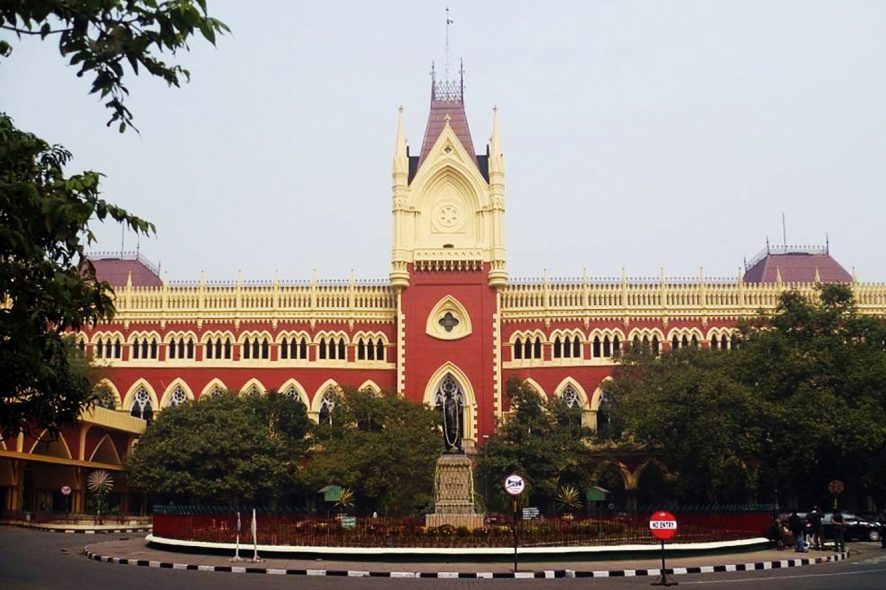Calcutta High Court: Shekhar B. Saraf, J., in the instant matter after a precedential examination with regard to judicial inquiry, laid down a few principles for the same.
Petitioners sought command towards Secretary of the West Bengal Central School Service Commission – Respondent 4 to allow petitioners to add their enhanced training qualifications, as prescribed in the Recruitment Rules, 2016 in the process of selection for appointment to the post of Assistant Teacher in Upper Primary Level of Schools in pursuance of the Appointment Notification dated September 23, 2016, as well as to consider their candidatures as trained candidates as per verifications to be submitted online in terms of the latest verification notification dated December 28, 2020.
Analysis, Law and Decision
Bench stated that in Aktarul Islam Kayal v. State of West Bengal, W.P.A. No. 9597 of 2019, Court did not set aside the advertisement published on September 23, 2016, and Commission was directed to hold a fresh selection of all candidates who were found to be eligible under Rule 12(2).
The above position clearly prevents the court from any intervention with regard to such advertisement.
Further, the fresh cause of action that arose was with regard to enhanced qualifications to be considered due to the fact that the selection process had been postponed by 4 years.
Supreme Court’s decision in Shankar K. Mandal v. State of Bihar, (2003) 9 SCC 519 which had also consciously considered the decision in Ashok Kumar Sharma v. Chander Shekhar, (1997) 4 SCC 18, clearly reiterated the point of law that when there is no cut-off date provided for in the Rules, then such date shall be as appointed for the purpose in the advertisement/notification inviting such applications.
State or its constituent statutory bodies as the Commission have a right to fix a cut-off date in the advertisement for the purposes of such selection process. Furthermore, the cut-off date has to be adhered to and applied consistently for all persons and the same cannot be ignored for a particular person.
Bench expressed that one cannot lose sight of the fact that the Courts in this country including High Courts, are institutions tasked to adjudicate and not to legislate.
In the Supreme Court decision of Hari Krishna Mandir Trust v. State of Maharashtra, (2020) 9 SCC 356, Court had reiterated the scope of the powers of a High Court exercising its powers under Article 226 of the Constitution of India.
Moving on to the precedents of the Supreme Court that prescribe non-interference in policy decisions of the State under this Court’s judicial review powers, the Supreme Court had held in Ekta Shakti Foundation v. Govt. of NCT of Delhi, (2006) 10 SCC 337 as follows:
“11. The scope of judicial enquiry is confined to the question whether the decision taken by the Government is against any statutory provisions or [is violative of] the fundamental rights of the citizen or is opposed to the provisions of the Constitution. Thus, the position is that even if the decision taken by the Government does not appear to be agreeable to the court, it cannot interfere.”
Supreme Court in Directorate of Film Festivals v. Gaurav Ashwin Jain, (2007) 4 SCC 737, dealt with the entrenched scope of judicial review concerning governmental policy.
3-Judge Bench headed by the then Chief Justice T.S. Thakur in Centre for Public Interest Litigation v. Union of India, (2016) 6 SCC 408, extensively discussed the scope of judicial interference in government policies.
Based on the above precedential examination, the following distinct principles emerged:
- The scope of judicial enquiry apropos policy decisions/matters of the State is restricted to the “sole dimension” of whether such policy decision/matter is either :
i.against any statutory provision;
ii. violative of any fundamental rights of a citizen;
iii. in the teeth of any Constitutional provision;
iv. manifestly arbitrary/discriminatory;
v. based on irrelevant consideration.
- Only the ‘legality’ of the policy decision, and not the wisdom or soundness of such decision can be a subject matter fir for judicial review under Article 226 of the Constitution of India.
- Constitutional Courts, such as this Court ought to be hesitant in interfering in matters of such policy or the day-to-day functioning of any departments of the government or any statutory bodies.
- Negligible interference in policy decisions when such decisions are the outcome of deliberations of technical experts as Courts lack the expertise to determine the basis/factors based on which such decisions might have been taken. This is also inclusive of “economic policies”.
In view of the above discussion, Bench stated that the policy decision of the Commission reflected through its initial notification/advertisement dated September 23, 2016, as a statutory body, in the present case does not touch the realm of arbitrariness and accordingly, no interference is called for.
Hence, Court doesn’t need to mould such advertisement to allow a change in the circumstances that may have taken place with regard to the enhanced qualifications of the writ petitioners. Attempt by this Court to allow the same would result in an unfair treatment for those who did not enhance their qualification and are not present before this Court, not to mention taking an erroneous step in encroaching into the domain of the executive branch of the government.
Therefore, the batch of writ petition was dismissed. [Subhasis Negel v. State of West Bengal, 2021 SCC OnLine Cal 194, decided on 19-01-2021]







